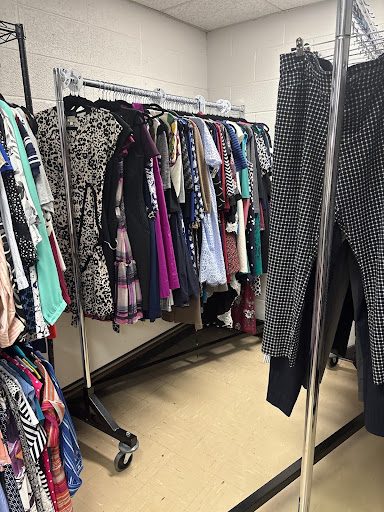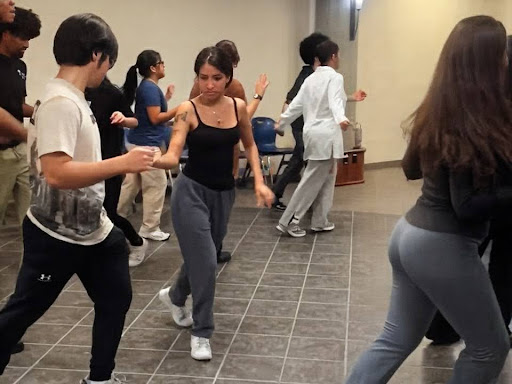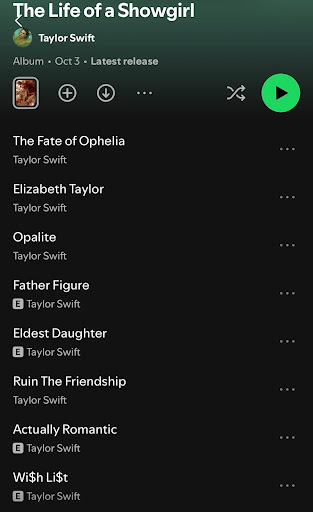Utica College awarded data grant
Image created by Utica College when the school posted the news about receiving the RWJF data grant.
February 10, 2022
Utica College announced on Jan. 20 that it received a data access grant from the Robert Wood Johnson Foundation (RWJF). The grant provides the school with the opportunity to look at how people’s socio-economic status relates to their access to health during the pandemic.
Acquiring this grant was not an easy task for the college and the process began in November 2020. Data Science Professor Michael McCarthy and his team originally hoped to work with clinical data so the research could better support the college and its large population of clinical students. However, that did not happen.
About a month later, McCarthy spotted the opportunity to apply for the RWJF grant to examine the data from TransUnion Healthcare. He brought this up to the Intermountain COVID-19 Impact Consortium consisting of Stephanie Nesbitt, dean of the School of Business and Justice Studies, and two other doctors from SUNY Oneonta. This small group submitted the first research proposal. From there, the team grew, adding several key colleagues to the group who aided in creating the more extensive proposal for the second round of applications. That would lead the team to the final round of clarification.
“We were very excited because it was kind of a tell-tale that we were on the right track and they just wanted a little more clarity,” McCarthy said.
The team was justified in their excitement as they would ultimately find out privately in August that they would receive the grant. Considering this news, McCarthy and his team were hoping to be analyzing this data by this past November. However, due to the legal reviews and other bureaucratic steps that need to take place, the grant was not able to be awarded until recently.
The data that is being used by the team is being collected by TransUnion. TransUnion, which is one of three credit bureaus in the U.S., has information on every person/household with credit within America. The company is not handing out people’s personal credit information for research purposes, but is instead grouping individuals into groups of 1-to-12 based on their geographic location. If you think about the number of households in the country this grouping system adds up very quickly, creating large amounts of data to analyze.
These large amounts of data not only benefit the people doing research but also the online infrastructure here at Utica College. The college’s IITS has helped the team in transferring this data to the institution by utilizing AWS web services. Which has the potential of being beneficial to the whole campus next semester as Google is decreasing its unlimited cloud storage space next year. The first half of the data was transferred to the team this past week and the other half is expected to be coming within the coming weeks.
There are three main goals the team is looking to achieve in analyzing people’s socio-economic status:
- Are regions with higher proportions of racial and ethnic minorities experiencing disproportionate economic distress as a result of the COVID-19 recession?
- Are regions that were already dealing with high levels of economic distress more or less prone to further economic distress as a result of the COVID-19 recession?
- How has the economic distress of COVID-19 in metropolitan areas affected the economy of their hinterlands?
By looking at these three elements the team is hoping to provide information that will help officials understand the relationship between individual’s financial resiliency and health resiliency. With the hope that it will lead to better policy making in terms of healthcare, public health and economics. On a smaller scale, students like graduate student Jesseca Johnson who are involved in this analysis, will gain hands-on experience that they can take with them in their future careers.
“For me personally, it will be invaluable to have experience with actual ‘big data’ as I begin my data science career,” Johnson said.







































































































































